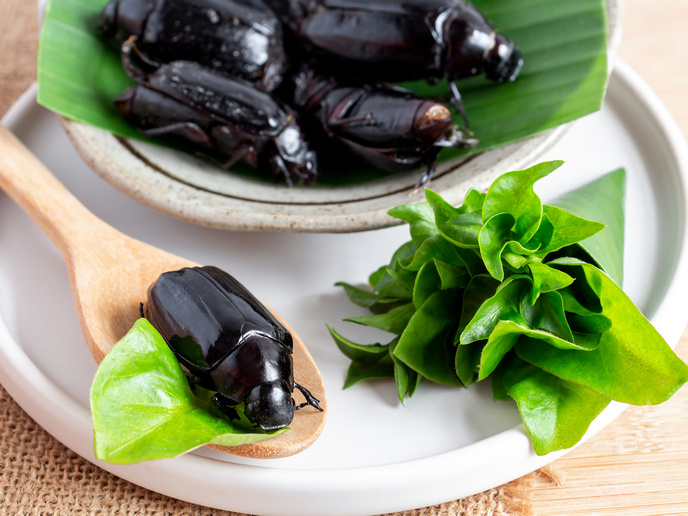Cricket, anyone? A look at Europeans’ attitudes towards alternative protein
A recent study led by SWPS University of Social Sciences and Humanities in Poland has shed some light on European consumers’ attitudes towards alternative protein foods (APFs). The study is supported by the EU-funded LIKE-A-PRO project, whose ultimate aim is to mainstream APFs so that they become widely accessible and accepted by consumers across Europe. However, are northern Europeans’ tastes in food the same as those of people living in southern Europe? Would southern Europeans be willing to eat crickets? And how open are people in eastern Europe to adopting novel foods? The study focused on eight countries – Czechia, Denmark, Finland, Germany, Italy, Poland, Spain and the United Kingdom – to gain insight into people’s attitudes to foods produced from alternative proteins such as peas, rapeseed, mushrooms, krill and mealworms. The team analysed research from 11 peer-reviewed journal databases. They found that many consumers view hybrid products combining conventional and alternative protein as healthier, more ethical and more environmentally friendly than meat products. However, this does not mean that these same consumers have any intention of buying such products. For example, a positive attitude towards APFs was especially evident among Danish consumers, but according to one research project investigating purchase intentions, only 46 % of Danes are willing to buy hybrid meat (combining plants and meat).
The reluctant east
The analysis showed that consumers from Czechia and Poland knew less about novel foods and were less willing to adopt them than their Danish and German counterparts. “These patterns should be considered in the context of persistently high intake of meat (compared to pulses) per capita in the years between 2018 and 2020 in countries such as Poland,” explains the LIKE-A-PRO study lead author Hanna Zaleśkiewicz, who is a PhD candidate at project partner SWPS University. This trend was evident even among young consumers. In Germany, 73 % of young people purchase novel foods soon after they are available (food innovators) or after some consideration (early followers). In Czechia, Poland and Slovakia, only 24 to 36 % do so.
The deal with insects
Northerners were found to be more accepting of insect-based APFs than southerners. Consumers in Finland and Sweden are more positive about these foods than Czechs and Germans. Only 18 to 22 % of British and Spanish consumers are willing to buy them, while Italian consumers are much more reluctant than their northern and western peers. “Food culture and eating patterns in Northern Europe might have changed in recent decades, whereas Italian food culture is considered one of the strongest in Europe, with over 200 food products, where meat plays an important role,” Zaleśkiewicz emphasises. The analysis did not reveal differences in APF adoption between rural and urban areas. However, attitudes in more multicultural and cosmopolitan cities such as Paris and Helsinki were found to be more positive towards such foods. For example, Parisians consume more seaweed-based APFs than other French cities, likely due to Paris’ large Asian population. Finally, the study showed that locally producing an APF could increase the likelihood of people trying it. This preliminary insight into differences among consumers in diverse European regions suggests that varied messages could be used to promote APF intake across Europe, taking into account motivational factors such as health and environmental and animal welfare-related benefits. LIKE-A-PRO (From niche to mainstream - alternative proteins for everybody and everywhere) ends in 2026. For more information, please see: LIKE-A-PRO project web page
Keywords
LIKE-A-PRO, protein, alternative protein, insect, consumer, alternative protein food, meat



